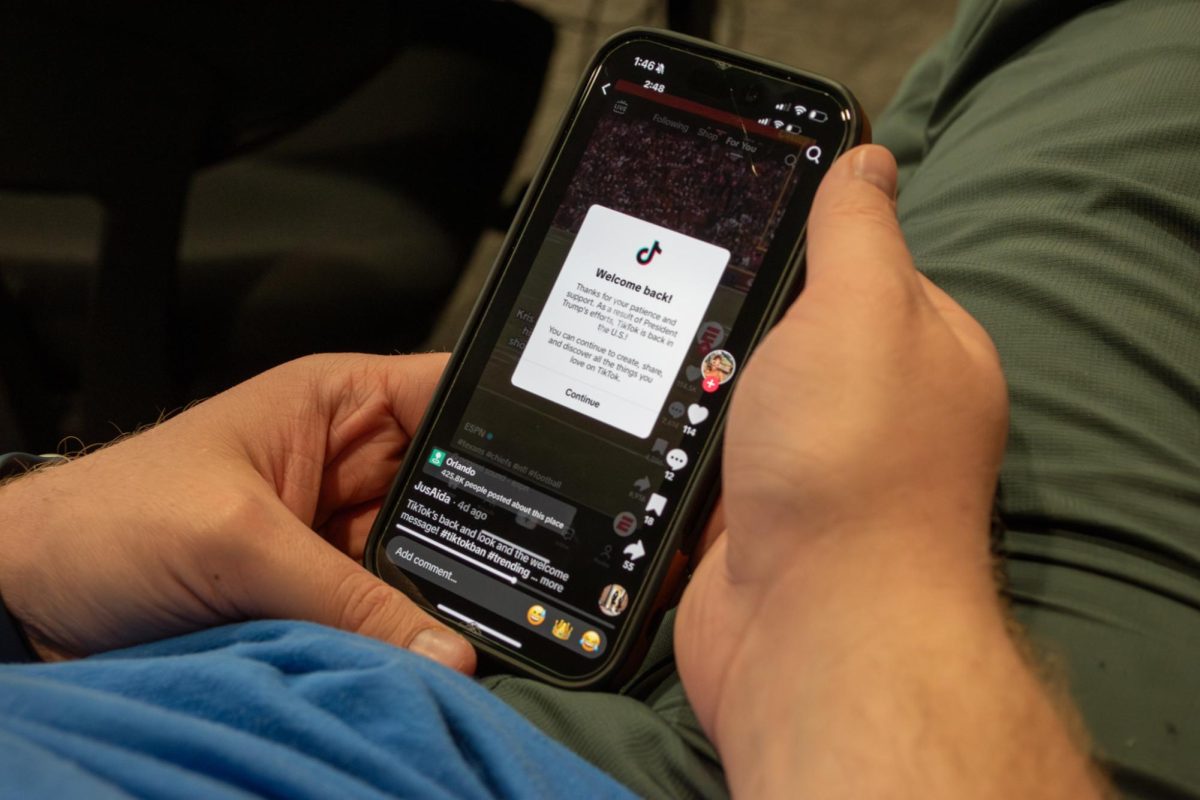TikTok has become an influential app in the U.S. in the past few years. Users enjoy the curated content the app provides, however, U.S. lawmakers scrutinize the app for its access to users’ data and its potential connections to the Chinese government.
“A lot of students use TikTok, most of my friends do,” said Max Ciarlariello, a senior biochemistry major. “I haven’t been keeping up fully with the changes that have been happening, but I saw how many people posted that it was done. It was very surreal seeing something like this happen.”
The lawsuit
In April 2024, Congress passed a controversial law that would require ByteDance, TikTok’s parent company, to sell its operations to America or receive a nationwide ban. TikTok has over 170 million U.S. users.
Former President Joe Biden signed the law after receiving bipartisan support. The law’s passing was influenced by the concern that ByteDance has access to American users’ data, which lawmakers believe poses a threat to national security.
A lawsuit was then filed claiming the law violated the First Amendment’s protection of free speech. TikTok attempted to ease the concerns of lawmakers by routing American user data through Oracle’s cloud infrastructure.
“I think [TikTok] being taken away from the app store does feel like it’s a violation of the First Amendment,” said senior physics major Connor Brown. “It’s confusing because, if this was such a large issue, wouldn’t other countries be chiming in?”
Going dark
In Dec. 2024, the federal appeals court upheld the ban, leading TikTok to inform its users that it would “go dark” unless the Biden administration clarified the enforcement of the law. The U.S. Supreme Court ruled on Jan. 17 to uphold the law, requiring the ban to take effect on Jan. 19.
Although Biden’s administration said it would let the next presidential administration enforce the law, TikTok’s team removed the app regardless. The app became unavailable on Jan. 18 for U.S. users for approximately 12 hours. Users received a message that the app was no longer available in the U.S., and it was subsequently removed from app stores.
“We have real monetary and social problems in our country,” Brown said. “It doesn’t affect me, but I don’t think we should be focusing on an app because it potentially involves the Chinese government.”
Delaying the ban
On Jan. 20, President Trump issued an executive order to delay the ban of TikTok in the U.S. for 75 days. The app was back online by Jan. 21 with a message crediting Trump’s intervention for the restoration of its services. The 75 days will allow TikTok to continue negotiations.
TikTok has been a topic for U.S. lawmakers since concerns were raised about the app’s data practice and potential ties to the Chinese government in 2019. In 2020, the Trump administration sought to force ByteDance to sell TikTok’s U.S. operations. The negotiations subsequently fell apart.
TikTok’s CEO, Shou Zi Chew, attended Trump’s inauguration. The future of the app remains uncertain.
“I don’t think that the issue matters that much,” Ciarlariello said. “Altogether, there isn’t much we can do about what happens next, but I understand why people are annoyed. It’s ridiculous that people think it’s a political matter. It’s just an app.”
Lindsay Collier is a reporter. Contact her at [email protected].




